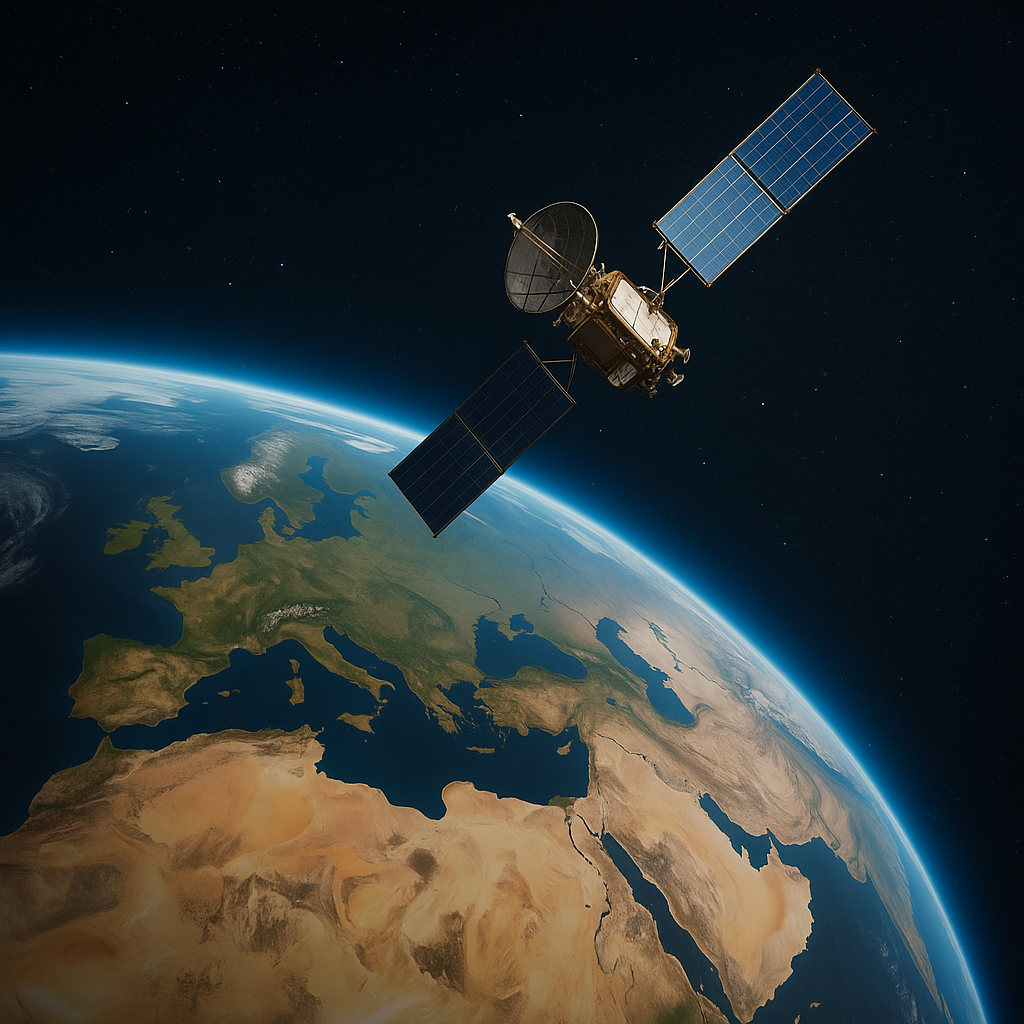By SpaceAutonomy.ai
Space is getting crowded—and fast.
With over 11,000 active satellites currently in orbit and more than 50,000 expected to launch in the next decade, the race for orbital dominance is heating up. But while tech giants and defense contractors build constellations and exploration systems at breakneck speed, one question remains painfully unclear:
Who’s regulating space?
In response to this growing chaos, the European Union has proposed the EU Space Act—a sweeping legislative framework designed to unify fragmented space laws, strengthen cybersecurity, and ensure the sustainability of Europe’s presence in orbit.
If adopted, it would mark one of the most ambitious attempts yet to bring order, security, and economic power to the final frontier.
🚨 Why the EU is Pushing This Now
According to the European Commission, the current legal landscape across Europe’s space sector is a patchwork of incompatible national regulations. This fragmented system is:
- Slowing down innovation
- Increasing costs for private enterprise
- Limiting Europe’s role in the global space market
In an era of AI-driven autonomy, orbital defense platforms, and commercial mega-constellations, the EU wants to act decisively—before it falls permanently behind the U.S., China, or even emerging players like India.
🔐 The EU Space Act’s 3 Pillars
The legislation rests on three foundational goals:
1. Safety
Space is littered with more than 128 million pieces of debris—from dead satellites to shrapnel-like fragments. The EU proposes new disposal requirements and object tracking standards to reduce orbital collisions and prevent future debris.
2. Resilience
Space infrastructure is becoming a prime target for cyberattacks. The act introduces mandatory risk assessments, incident reporting, and cybersecurity protocols for all satellite operators—civil, commercial, or military.
3. Sustainability
From launch emissions to e-waste, space activity has a carbon cost. The EU framework will monitor environmental impact, enforce resource accountability, and create shared standards for sustainable development in orbit.
🌍 One Framework, Global Reach
Importantly, the rules won’t apply only to EU companies. Non-EU operators offering services in Europe would also need to comply. And the regulation would scale depending on company size and risk level, ensuring SMEs and startups aren’t priced out of orbit.
To offset compliance burdens, the EU plans to fund support systems—including access to test facilities, technical support, and streamlined licensing pathways for emerging companies.
🌌 Europe’s Shot at Leading the Space Economy
Make no mistake: this is about more than safety. It’s about economic and technological sovereignty.
Space is no longer just the realm of scientists and astronauts. It’s the invisible backbone of everything from:
- 🌍 Climate data
- 🛰️ Navigation and logistics
- 🧠 AI model training
- ⚡ Defense infrastructure
- 💸 Banking and insurance
- 🚜 Agriculture and energy
The EU’s new space economic strategy includes 40+ initiatives designed to increase market share, accelerate innovation, and strengthen Europe’s autonomy in critical technologies.
This includes launching a new European Space Team—a high-level forum that will align the efforts of ESA (European Space Agency), EUSPA (EU Agency for the Space Programme), and private sector leaders.
By 2030, the EU wants to be more than a contributor. It wants to be a global power in orbital infrastructure—from manufacturing to military strategy.
🧠 Our Take at SpaceAutonomy.ai
The EU Space Act is more than policy—it’s a geopolitical chess move.
In a future where AI pilots spacecraft, autonomous swarms defend satellites, and real-time data is warfare fuel, Europe doesn’t just want a seat at the table. It wants to shape the table itself.
But success depends on execution. The framework must be:
- Flexible enough for rapid innovation
- Strict enough to ensure cyber- and orbital security
- And globally respected enough to influence non-EU players
We’re watching this one closely—not just because it’s legislation, but because it’s a signal. A declaration that space is no longer a frontier. It’s a contested domain—and the ones with vision, structure, and sovereignty will shape what happens next.
📣 Stay in Orbit With Us
At SpaceAutonomy.ai, we track the evolving battlefield of orbital tech, AI weapons systems, and the policies shaping the next era of autonomy.
🚀 Read more at SpaceAutonomy.ai
🛰️ Follow @Space_Autonomy and @SpaceAutonomy
S-11
